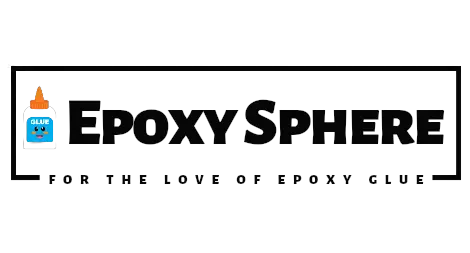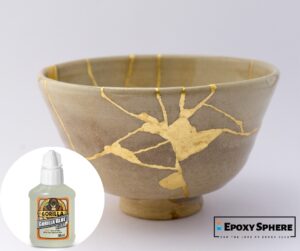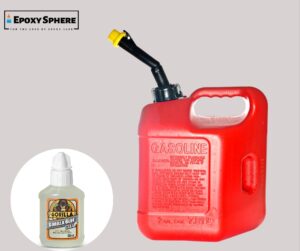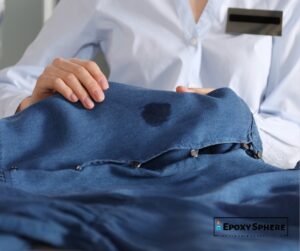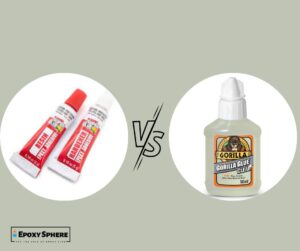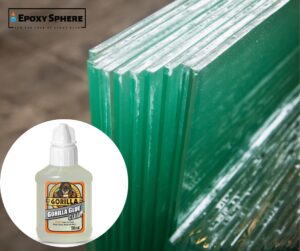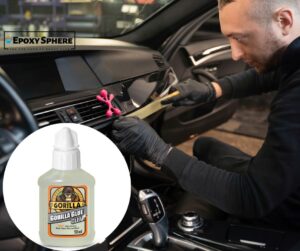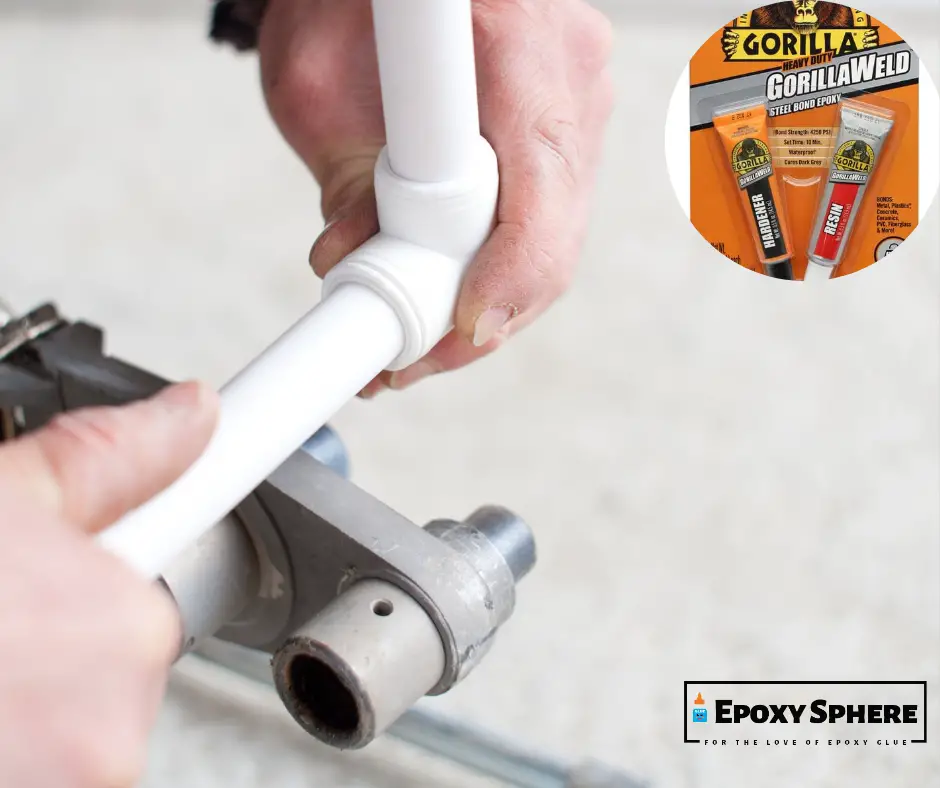
Will Gorilla Glue Epoxy Work on Plastic?
Does gorilla glue epoxy work on plastic? The answer is: it depends. Gorilla Glue epoxy is a strong adhesive that works well on many materials, but it may not be the best choice for plastic.
Since plastic is a porous material, epoxy may not form a tight seal and could eventually come loose. If you’re looking to bond plastic, try using a product specifically designed for that purpose.
Gorilla Glue epoxy is a good choice for most materials, but it’s always best to check the product label to make sure it’s safe to use on your specific project.
What is Gorilla Glue Epoxy?
Gorilla Glue Epoxy is a two-part adhesive that’s made of bonding metal, wood, glass, and ceramics. But does it work on plastic?
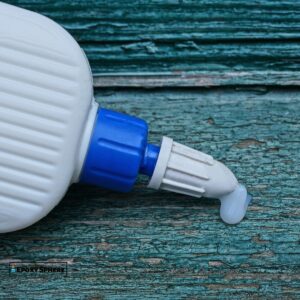
Gorilla Glue Epoxy will bond to most plastics, including polyethylene, polypropylene, PVC, acrylic, and ABS. But it’s important to note that not all plastics are created equal, so it’s always best to do a bit of testing before using it in a critical application.
The great thing about Gorilla Glue Epoxy is that it’s incredibly strong; it can hold up to 2,000 pounds per square inch. Plus, it dries clear, so you don’t have to worry about any unsightly seams. So if you’re looking for glue that can handle just about anything, Gorilla Glue Epoxy is the way to go.
Does Gorilla Glue Epoxy Work on Plastic?
Gorilla Glue Epoxy works best on difficult-to-bond surfaces, including metal and some types of plastic.
The two-part system includes an epoxy resin and a hardener that, when mixed together, creates a durable bond. Gorilla Glue Epoxy can be used to repair everything from broken household items to major industrial equipment.
Epoxy is one of the strongest adhesives on the market and can be used to glue plastic to metal.
Gorilla Glue Epoxy works on most plastics, but it works best on rougher surfaces. To ensure the best possible bond, it is important to roughen up the surface of the plastic before applying the epoxy.
Once the Gorilla Glue Epoxy has been applied, it will need to cure for 24 hours before it is fully set. After it has cured, the bond will be incredibly strong and durable.
What Types of Plastic Can’t Gorilla Glue Epoxy Be Used On?
You’re probably wondering if we can use gorilla glue epoxy on plastic. And the answer is yes!
But before you get started, there are a few things you need to know. First, make sure the surfaces are clean and dry before you start gluing. Second, the two surfaces need to be flush with each other for the best results.
And finally, gorilla glue epoxy only works on certain types of plastic. It won’t work on polyethylene or polypropylene, which are two of the most common types of plastic. But it will work on acrylic, polystyrene, and PVC.
How to Use Gorilla Glue Epoxy on Plastic
Do you want to use Gorilla Glue Epoxy on plastic? Here are a few things to keep in mind:
- First, make sure that the surface is clean and dry. If it’s not, the epoxy won’t adhere correctly.
- Second, use a putty knife or something similar to apply a thin coat of epoxy to the surface. Be careful not to apply too much, or it’ll drip and be difficult to work with.
- Third, give the epoxy enough time to dry before you start using the plastic piece. Usually, it takes around 24 hours for the epoxy to cure completely.
Tips for Using Gorilla Glue Epoxy on Plastic
With Gorilla Glue epoxy, there are a few things you should know before you use it.
For one, it will not work on every type of plastic. So make sure you do a little research beforehand to see if it will work with the type of plastic you’re using.
Another thing to keep in mind is that Gorilla Glue epoxy is a two-part system, which means you need to mix the resin and the hardener together before use. And finally, always read the instructions carefully to make sure you’re using them correctly.
What Are the Precautions for Using Gorilla Glue Epoxy?
You’re probably wondering if Gorilla Glue Epoxy will work on plastic. The answer is, it depends. Gorilla Glue Epoxy is a mighty adhesive, but it’s not always the best choice for plastic.
The reason being is that epoxy doesn’t always form a strong bond with plastic. It might work sometimes, but it’s not always a sure thing. So before you use Gorilla Glue Epoxy on plastic, it’s important to do a little test to see how well it will work.
Apply a small amount of epoxy to an inconspicuous spot on the plastic and let it dry. If everything goes according to plan, then you can use the epoxy elsewhere on the plastic.
But if the bond between the epoxy and the plastic isn’t strong enough, then you’re going to have a problem with your hands.
What Is the Strongest Glue for Plastic to Plastic?
There are a few different types of glue that work well on plastic. Super glue, epoxy, and contact cement are all good choices. Each has its own advantages and disadvantages, so it’s important to choose the right one for your project.
Superglue is one of the strongest glues for plastic. It dries quickly and forms a strong bond. However, it’s difficult to remove if you make a mistake.
Epoxy is another strong glue for plastic. It takes longer to dry, but it’s easier to remove than super glue.
Contact cement is the third option. It’s not as strong as super glue or epoxy, but it’s easy to use and dries quickly.
When choosing glue for plastic, it’s important to consider the strength of the bond, the drying time, and the ease of use. Choose the right glue for your project, and you’ll be sure to get a strong, lasting bond.
Conclusion
There’s no definitive answer to this question since gorilla glue epoxy can be used on a wide variety of materials. However, it’s worth giving it a try and seeing how it works on your specific plastic item.
Always do a test patch in a hidden area first to make sure the glue doesn’t cause any damage to the plastic. If everything looks good, then start gluing. Be patient and take your time, making sure the surfaces are completely smooth and free of any bubbles.

Hi, This is John Davis. After years of working in the construction industry, I decided to create a website that would provide people with information about glue and its exceptional uses. I hope You find it useful
